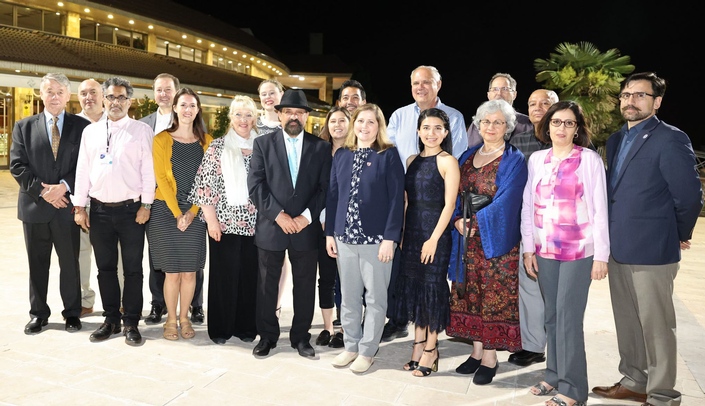A group from UNMC was among 175 leading health care researchers, clinicians and policymakers from 23 countries in the Middle East and North Africa (MENA) region to present state-of-the-art research related to the pandemic.
The focus was on the development of partnerships through which international institutions can work together to better prepare for future pandemics in the region and around the globe.
UNMC was one of the co-organizers of the international conference “COVID-19 in the Middle East and North Africa Region: Lessons Learned in Research, Policy, Public Health and Clinical Practices,” which was held May 30-31, in Gaziantep, Turkey.
UNMC’s participation included leadership from the UNMC Global Center for Health Security, the UNMC College of Public Health, iEXCEL, the UNMC College of Medicine and the UNMC Office of Global Engagement.
“In order to impact COVID-19 and so many other diseases, UNMC’s geographic reach and aspirations must be global,” said Jane Meza, PhD, associate vice chancellor, UNMC Office of Global Engagement. “We know that working internationally and with international colleagues and achieving global impact are essential for achieving our mission. Our goal is to work with our international partners to develop programs and interventions, which may save people’s lives and prevent diseases, both in the MENA region and around the globe.”
Chris Kratochvil, MD, said UNMC was honored to serve as one of the co-sponsors.
“The scientific forum was an opportunity for our team from UNMC to learn from colleagues in the MENA region, to develop relationships for future collaborations and to share perspectives based upon all of our experiences over the past two and a half years,” said Dr. Kratochvil, distinguished chair of the Global Center for Health Security and one of several UNMC keynote speakers.
Dr. Meza said although many needs and possible solutions were identified and discussed during the conference, there is growing agreement that more effective planning for future situations is needed and that the need for emergency planning and preparedness is a priority. Other priority areas emerging from the conference participants focused on the need for improved mental health support services, the training and development of an expanded health work force at all levels and the increased use of simulation technology and practices.
